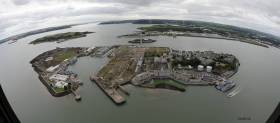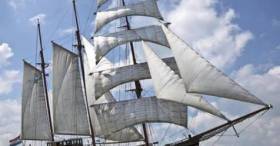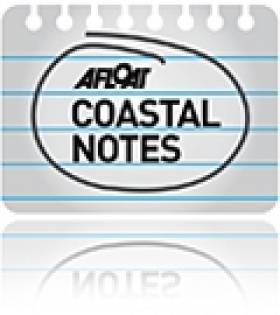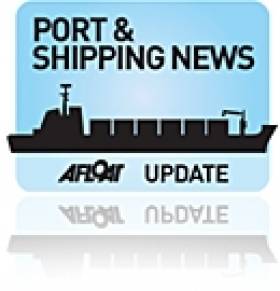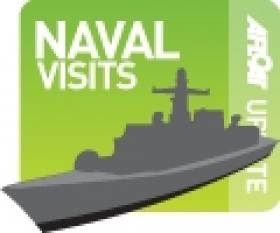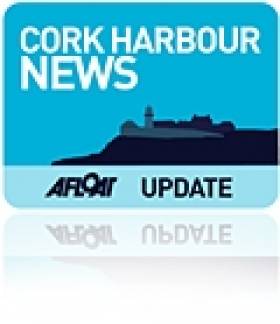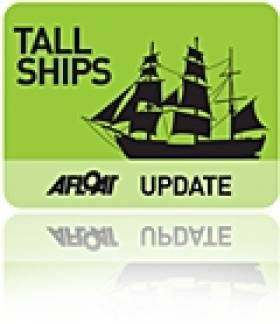Displaying items by tag: Cork City
By 2030 Port of Cork to Vacate City Centre
The Port of Cork Company (PoCC) plans to move completely out of Cork city centre in the next eight years, as part of a €250m Masterplan for the Port that will move shipping activities to the lower harbour.
The PoCC has been holding public consultations on its ‘Port Masterplan 2050’ this week in a number of locations.
A major focus of the plan is for the PoCC to completely vacate the city centre by 2030, and vacate Tivoli by 2040, migrating all activities down to the lower harbour areas of Marino Point, Cobh, and Ringaskiddy.
“It’s not just about the Port going to the lower harbour because there are bigger ships and we have to have enough capacity for demand, it’s also about unlocking the city quays for development for urban living and sustainable active travel” said Tim Murphy, Head of Port Engineering with PoCC, speaking at the consultation day in Páirc Uí Chaoimh (yesterday).
He said that vacating Tivoli alone will unlock 150 acres for development in Cork city.
For more on the port's shift downriver, EchoLive reports.
#navy - Next Saturday a parade will be held in Cork, Echolive reports, to highlight concerns about pay and conditions of members of the Naval Service.
The Parade for Respect and Loyalty will take place at 12 noon on the Grand Parade and is being held to raise support for the Navy members.
It will follow the commissioning tomorrow of the latest Naval ship, the LE George Bernard Shaw, in Waterford tomorrow (today, Sunday, 28 April).
And it comes after a series of parades and actions last year by veteran Defence Force members and the Wives and Partners of the Defence Forces.
One of the organisers, Defence Forces veteran Noel O'Callaghan said: "Our Navy has nine ships, of which two are in dry dock due to a shortage of sailors. To keep the other seven ships at sea they have to change around crews, and have unqualified sailors in specific appointments."
He said the concentration should instead be on pay, allowances and contracts of existing members.
More on the story can be found here.
Tall Ship Hotel On Cork City Quays Due End of October
#CorkHarbour - A Tall Ship Hotel could be berthed on Cork's City quays before the end of October, serving food and drink and with luxury rooms for overnight stays.
According to the Evening Echo, a company which has planning permission to moor a floating hotel on Penrose Quay is planning to dock a smaller ship, the 55-metre Anna Marjorie, at the location while work continues on finalising the longer term plan for a larger vessel.
Sick & Sore Limited say they have had very constructive meetings with both the Port Of Cork and Cork City Council and the project now only requires sign off from the fire officer. They hope to get the nod in the coming weeks in order to get the ship, which is currently in the Netherlands, to Cork before the winter sets in.
“I must compliment the Port of Cork, they have been brilliant to deal with and so encouraging,” Sam Corbett said. “It is very refreshing to see how supportive the Port and City Council were.”
For more on this story, click here.
‘Rotten Eggs’ Smell in Cork City Blamed on Dredging Works
#CitySmell - Strong smells affecting Cork city for the past four days are being blamed due to dredging works near the city quays.
The Environmental Protection Agency (EPA), which monitors air quality in the city, said the disturbance of marine sediments could give rise to a release of hydrogen sulphide, which would explain the sulphur or rotten eggs odour.
Shoppers, business owners and visitors to Cork have all reported a foul smell at various locations since Saturday. For more on this the Evening Echo has a report.
New Ship-Management Company Launched in Cork
#PORTS & SHIPPING NEWS – The Irish Maritime Development Office (IMDO) have welcomed a newly founded ship-management company, Barry Shipping, which started operations in Cork at the end of last year.
The company headed by Corkonian Owen Barry, provides ship management, crew management, project management, training and a range of other services for the maritime industry.
Glenn Murphy, director of the IMDO said "We wish Barry Shipping well with their new venture and look forward to providing them with further strategic and network support to assist them during their continued development".
Commenting on their future strategy Barry said, "The company's aim is to provide clients with creative and profitable solutions to meet and overcome some of the unique challenges in the current climate".
Barry graduated from Cork Institute of Technology (CIT) in 1996 and started his career with BP Shipping as an Engineering Cadet. This was followed by working with leading passenger operators Irish Ferries, P&O Cruises and Dobson Fleet Management where he served as Chief Engineer and Technical Superintendent. In 2009 he returned to Cork to run operations for Fastnet Line.
For more information about the new company, visit www.barryshipping.com
In addition for details about the role of the (IMDO) which is Ireland's national dedicated development, promotional and marketing agency for the shipping services sector click HERE
Dutch Navy Stealth Frigate to Visit Cork City Centre
#NAVY VISITS -HNLMS Evertsen (F805) a Dutch naval frigate with a crew complement of 200 is due to make a weekend courtesy call to Cork City, berthing at J.J. Horgan's Wharf, writes Jehan Ashmore.
She is a sister of HNLMS De Ruyter (F804) which docked in Dublin Port last month, as previously reported in this section. The 144m frigates form two of a total of four De Zeven Provinciën-class air-defence and command frigates (LCF). The class present sharp angular lines (see PHOTO) due to stealth design technology to minimise radar signature detection.
Armament consists of a bow-mounted Oto Breda 127 mm cannon, vertical launch systems for various missile types, a 'goalkeeper' rapid-fire gun, an Oerlikon 20mm machine gun and a Mk. 46 Torpedo weapon system. At the stern she can carry a Lynx or NH-90 helicopter.
They displace 6,050 tonnes and propulsion plant are 2 x Wärtsilä 16 V26 diesel motor engines (13,600 hp total), 2 x Rolls Royce Spey SM 1A gas turbines (52,300 hp total). The class can achieve 30 knots and entered service between, 2001-2005 from the Royal Schelde Group shipyard in Flushing.
‘Call for Events’- Cork Harbour Open Day
This year's Cork Harbour Open Day will take place on Saturday 10th September. The event aims to embrace the best of what Cork Harbour has to offer.
The Open Day seeks to raise awareness of the different free activities and events available for families in the harbour both on and off the water. If you would like to be involved in Cork Harbour Open Day or organise an event on the day, please contact Sara MacKeown Tel: (021) 4625375 or by email: [email protected]
All of the events will be promoted on the lead up to the day via PR, advertising and social media. For further information www.corkharbour.ie
A Weekend to Explore the 'Bounty'
The Cork-berthed replica HMS Bounty, the purpose built movie prop tallship used in the 1962 MGM studies film release of 'Mutiny and the Bounty' starring Marlon Brando, will be open to visitors from tomorrow, writes Jehan Ashmore.
The famous tall ship is to open to the public between (11am-6pm) and these times also apply to the Saturday and Sunday. Tours on board the Bounty are self-guided with crew assistance. Admission charges are €10 for adults and children €5, children under four years go free.
The Bounty is berthed at Albert Quay which faces opposite the Cork City Marina on the south quays of the city-centre.
The public can explore her "tween" deck 8' foot ceilings, this made it easier for the film crew and their equipment to access.
As a result, Bounty has been hired by filmcrews for the making of 'Treasure Island', 'Yellowbeard', 'Sponge Bob, Square Pants, the Movie' and 'Pirates of the Caribbean - Dead Man's Chest'. In addition to commercial movies, Bounty has also been the stage for many documentaries.
To compare the differences between the replica and the original 18th century built 'Bounty' click HERE.



























